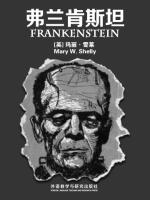Frankenstein
用户820797
Mary Shelley’s Frankenstein (1818) uses the audacious fantasy of science
overstepping God to tear away humanity’s arrogant mask of “creation” and
“control.” The young scientist Victor Frankenstein cobbles together a
corpse, breathes life into it, and then flees in horror at the monster’s
grotesque appearance, abandoning his “creation” to descend into
loneliness and hatred as a vengeful being. The core conflict lies in
“the creator’s dereliction of duty”: Victor is intoxicated by the
ecstasy of creation but refuses to bear ethical responsibility. The
monster’s violence is essentially a projection of the trauma of
abandonment—longing for love and acceptance, it is彻底异化 (completely
alienated) by its deviation from the “human standard” of appearance.
Wrapped in a Gothic thriller’s eerie shell, the novel deeply
interrogates scientific ethics, the duality of human nature, and social
prejudice: When technology crosses moral boundaries, are humans prepared
to face the consequences of “losing control”? The monster’s final
journey to self-destruction in the Arctic is both a控诉 (accusation) of
its fate and a tragic footnote to the loneliness of existence. As a
forerunner of science fiction literature, the book presciently
anticipates modern issues like technological ethics and identity
politics. Its compassion and reflection on the “other” remain profoundly
relevant today: How we treat “imperfect creations” may well be the
touchstone of civilization.



 京公网安备 11010802032529号
京公网安备 11010802032529号